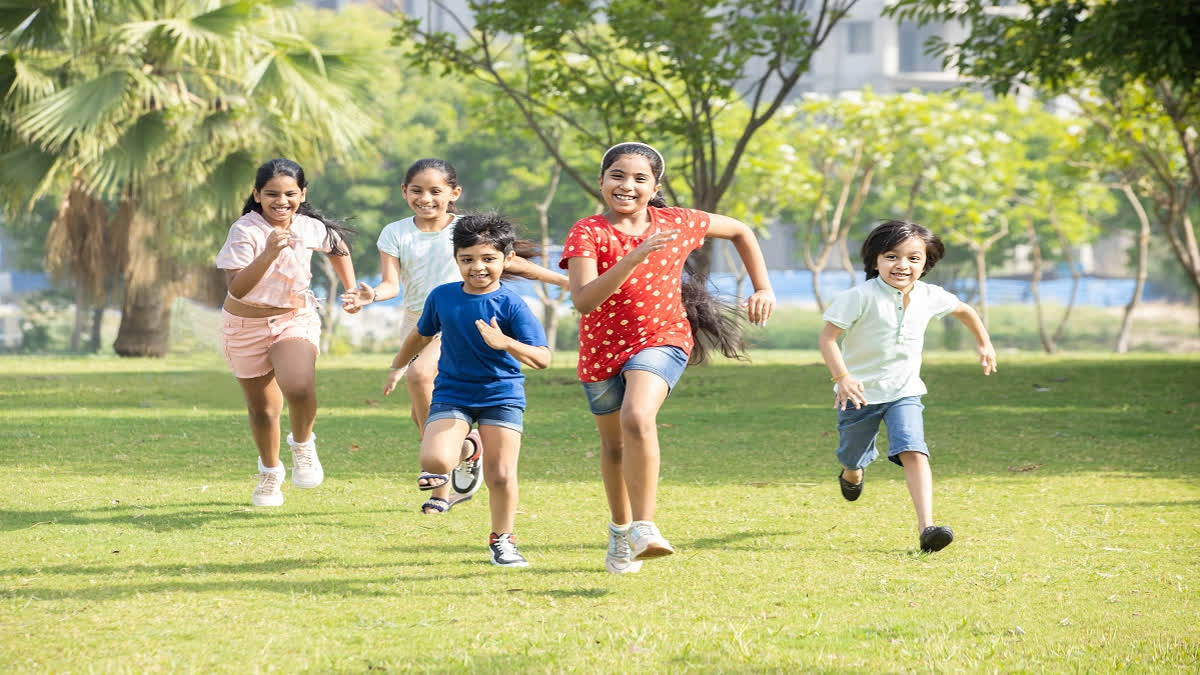Hyderabad: The very first International Day of Play will be celebrated on June 11. It follows a campaign that called on the United Nations to promote play in the lives of children everywhere.
Global research surveying over 25,000 children across 36 countries reveals that as many as 73 per cent of children don't believe adults take play – and how it can help them learn. With only 30 per cent of adults aware that play is a fundamental birthright adopted by the United Nations (UN) in 1989 the UN says there is an urgent need to "put play back on the agenda."
To drive this ambition forward, a dedicated network of global organisations, play experts and, most importantly, children and youth themselves, had called on UN member states to support the resolution for an International Day of Play. On 25 March, the UN General Assembly ratified the International Day of Play, with support from over 140 countries.
Why is Play Important?
Children learn best through play. Play creates powerful learning opportunities across all areas of development – intellectual, social, emotional and physical. Through play, children learn to forge connections with others, build a wide range of leadership skills, develop resilience, navigate relationships and social challenges as well as conquer their fears. When children play, they feel safe. Children play to make sense of the world around them. More generally, play provides a platform for children to express and develop imagination and creativity, which are key skills critical for the technology-driven and innovative world we live in.
Playful interactions contribute to the well-being and positive mental health of parents, caregivers and children. When humanitarian crises turn a child's world upside down, it is in play that children can both find safety and respite from adverse experience while also being able to explore and process their experiences with the world. When children are driven from their homes by war, conflict, and displacement, access to nurturing relationships with parents/caregivers and peers are critical buffers from the effects of violence, distress and other adverse experiences. Play comforts and soothes children. To encourage playful interactions between parents/caregivers and children, governments and other stakeholders need to create an enabling environment.
Key Factors
- 71% of children say play is important because it makes them happy, and 58% say that it helps them make friends and have a good time with others
- It is estimated that 160 million children around the world are working instead of playing or learning
- Only 1 in 4 children play out regularly on their street compared their grandparents generation where almost three-quarters said they played outside a few times a week
- 41% of children had been told to stop playing out by either their parents or other adults such as neighbours
The situation for children in India – challenges and opportunities
India’s growth over the last two decades has contributed phenomenally to global human development. Extreme poverty in India reduced to 21 per cent, infant mortality has more than halved, some 80 per cent of women now deliver in a health facility and two million fewer children are out-of-school. These are significant achievements for a country that is home to nearly a sixth of the world's population. But challenges still remain and India's economic successes have not resulted in improved quality of life for everyone everywhere, especially women and children.
Children from rural areas, slums and urban poor families, scheduled castes, tribal communities and other disadvantaged populations suffer from multiple deprivations related to poverty, malnutrition, access to quality health services, child marriage, poor school attendance, low learning outcomes, lack of sanitation facilities, hygiene, and access to improved water.
India has the largest adolescent population in the world, 253 million, and every fifth person is between 10 to 19 years. India stands to benefit socially, politically and economically if this large number of adolescents are safe, healthy, educated and equipped with information and life skills to support the country’s continued development.
However, adolescent girls are especially vulnerable to poor nutritional status, early marriage and childbearing, affecting their ability to live empowered, healthy lives, which in-turn affects the next generation.
India ranks fourth among the eight South Asian countries in terms of child marriage prevalence. The country is highly prone to disasters including flooding, droughts, earthquakes, refugee flows and climate change that all impact on the rate of development.
International Day of Play and the Karnataka connection
Global Participation
Involvement of Karnataka Children: Over 400 children from Udupi and Vijayanagara districts of Karnaraka participated in discussions to shape the International Day of Play.
Global Initiative: This effort was part of a global exercise involving 10,000 children from various countries organside by Child and youth friendly governance project.
Guidelines development
Children's input: Through online focus group discussions, children provided insights on what what the International Day of Play should represent and not represent.
Call to Action: Guidelines titled 'Children and Young People Call to Action' emerged from these discussions, emphasising the importance of children’s right to play.
Recommendations For Action
Enhancing Play Opportunities: Recommendations include providing more time and opportunities for play, especially in schools, creating safe play spaces, and supporting social skill development through play.
Play has been said to be "the work of the child" and it is our brain’s favourite way of learning. There is plenty of research and evidence highlighting the positive impact learning through play has on children's development.
Giving your child plenty of opportunities to play is one of the best ways to help them grow into curious, creative, healthy, and happy adults equipped with the skills they need today.



